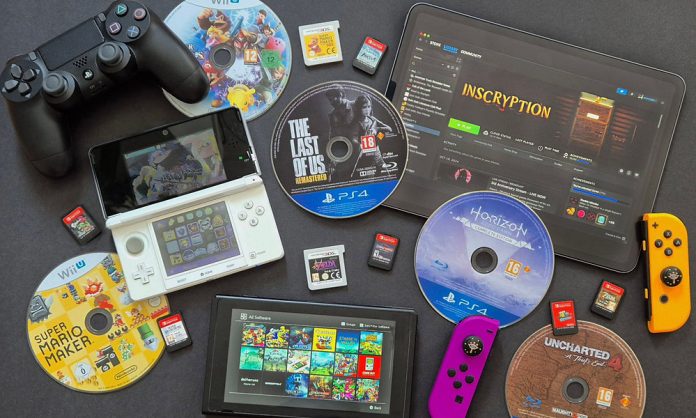
When we buy a game, do we really own it?
It is a question that becomes increasingly relevant with each new generation of consoles and digital storefronts. These days, when a new title launches, my first instinct is no longer to head to a store in search of a physical copy, it is to open Steam or the PlayStation Store. Digital purchases are instant, often more affordable, and save time. But with that convenience comes a subtle trade-off: we are moving further away from true ownership.
This shift is not exclusive to gaming. We have already seen it unfold in the music industry, with the rise of streaming platforms like Spotify, and in film and TV, where services like Apple TV and Amazon Prime have largely replaced physical media. In each of these cases, the same question emerges: are we buying access to media, or just renting it under the guise of ownership?
In gaming, the answer often depends on what a digital purchase includes. Many titles are distributed with DRM (digital rights management), a technology publishers implement to control how their games are used. In theory, it protects creators from piracy by preventing unauthorised copying or distribution. In practice, however, it often ends up punishing legitimate players. DRM can mean requiring constant internet connections even for single-player games, leading to performance issues and, more concerningly, the loss of access if the game is delisted. If ownership of a digital title is at the mercy of a platform or publisher, that is not ownership at all.
To further this, platforms like Steam and services like Xbox Game Pass have changed what game access means. Steam users often boast libraries that are hundreds of games deep, but all of those purchases are tied to their account and subject to the platform’s terms. Even in-game digital items, like skins in Counter-Strike: Global Offensive, are not truly owned. Valve holds the power to revoke access to them at any time.
Until recently the idea of a purchased game being revoked or erased has felt hypothetical. That changed in early 2024, when Ubisoft shut down The Crew, a popular open-world racing game released in 2014. Despite being a full-priced title, available both digitally and physically, the game relied on an always-online DRM model. When Ubisoft ended server support, the game became completely unplayable. Even those who owned physical copies were left with nothing more than a case and a disc that no longer functioned.
This marked a new and disturbing precedent: the total loss of access to a legally purchased, single-player capable game. Players who had spent their money and time suddenly found themselves with nothing to show for it.
The Crew was the first high-profile modern example of a game being sold and then completely taken away and it likely won’t be the last. This is why physical games and alternatives still hold so much value, and why they are worth fighting for.
Owning a cartridge or disc gives you something tangible, a copy of the game that no publisher can revoke. As long as your console functions and the media remains intact, you can return to the experience indefinitely. And beyond the personal benefit, there’s value in supporting the broader ecosystem that keeps these games alive.
Second-hand retailers like CEX help keep physical games in circulation. Buying pre-owned titles does not just save money, it helps extend the life of physical media and preserves gaming history in the process. Many titles that are no longer available digitally can still be found second-hand, allowing them to be enjoyed long after their publishers have moved on. If there is a game you love, consider owning a physical copy. It remains the most reliable way to ensure it stays yours.
That said, there are digital alternatives that support ownership too. GOG.com, for example, offers a curated library of DRM-free games. Games purchased there can be downloaded and backed up without restriction. It is a rare model in today’s market and a great alternative for players who want digital convenience without giving up control.
The gaming industry is evolving quickly, but that doesn’t mean we have to give up control for the sake of convenience. We are able to enjoy the ease of digital downloads while still caring about long-term access and ownership. After all, if we are paying for these experiences, it is fair to expect them to remain accessible to us.
One initiative working to address this issue is the Stop Killing Games campaign. The movement challenges the legality of publishers removing access to video games they have sold to customers. The group’s aim is to get the attention of EU lawmakers, with a proposal that would introduce stronger consumer protections around digital game ownership.
In the meantime, we can take small but meaningful steps by supporting second-hand stores, seeking out physical copies, and investing in DRM-free alternatives. Because when a game means something to you, you shouldn’t have to worry about whether you’ll be able to play it again.
Edited by Roxy-Moon Dahal Hodson
